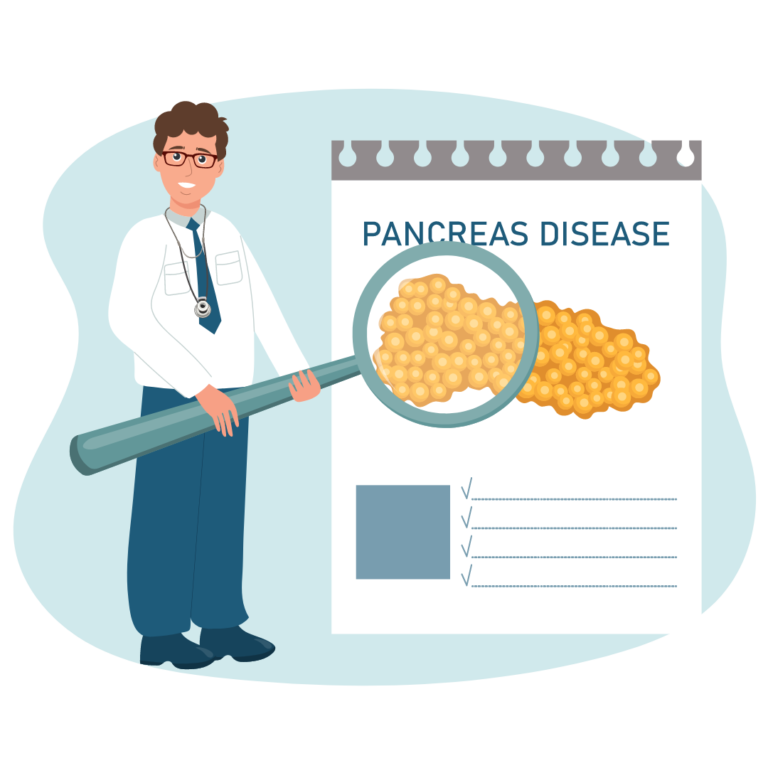Pancreatic Cancer Treatment in Bangalore
Pancreatic cancer is a malignant growth that originates in the tissues of the pancreas, a vital gland responsible for regulating blood sugar levels and aiding digestion. Recognizing the symptoms and understanding the disease’s progression are crucial for early detection and effective treatment. For those seeking the best pancreatic cancer treatment in Bangalore, a comprehensive evaluation and personalized care plan are essential for improving patient outcomes.
Dr. Rakesh R specializes in advanced treatment options for pancreatic cancer, including surgical interventions, chemotherapy, and targeted therapies. His expertise in gastrointestinal oncology ensures that each patient receives a customized approach, focused on their unique medical needs. With a commitment to patient education and support, Dr. Rakesh R aims to provide the best possible care, enhancing the quality of life for individuals facing this challenging diagnosis.
Book Your Appointment
What is Pancreatic Cancer?
Pancreatic cancer is a malignant growth that begins in the tissues of the pancreas. This gland is essential for controlling blood sugar levels and digestion.
Due to its aggressive nature, early detection is key to improving survival rates.
It starts in the tissues of the pancreas, an organ located behind the lower part of the stomach. The pancreas generates hormones that assist control of blood sugar levels and enzymes that facilitate digestion. PDAC is the most prevalent kind of adenocarcinoma of the pancreas.

Symptoms of Pancreatic Cancer
- Pain in the upper abdomen that could travel to the back
- Loss of appetite or unintended weight loss
- Jaundice (yellowing of the skin and eyes)
- Blood clots
- New-onset diabetes
- Fatigue
Recognize These Symptoms : Book your Pancreatic Cancer Screening Today!
Causes of Pancreatic Cancer
Several factors can increase the risk of developing this cancer:
- Smoking: The risk of this cancer is greatly increased by tobacco usage.
- Chronic Pancreatitis:Long-term inflammation of the pancreas, often due to heavy alcohol use, can lead to cancer.
- Diabetes: Long-standing diabetes increases the risk, especially if it is associated with other risk factors like obesity.
- Family History: Genetic mutations and a family history of this cancer can elevate the risk.
- Age: It is more common in older adults, typically affecting those over 60.
Prevention of Pancreatic Cancer
Prevention of pancreatic cancer involves adopting healthy lifestyle choices and managing risk factors that may contribute to its development. Strategies include
- Avoid Smoking: Quitting smoking can significantly reduce the risk of pancreatic cancer.
- Healthy Diet: Eat a diet rich in fruits, vegetables, and whole grains.
- Regular Exercise: Maintain a healthy weight through regular physical activity.
- Manage Underlying Conditions: Control diabetes and avoid excessive alcohol consumption.
Stages of Pancreatic Cancer
- Stage I: Cancer is confined to the pancreas.
- Stage II: Neighbouring tissues or lymph nodes have been affected by cancer.
- Stage III: The pancreatic major blood arteries have been affected by cancer.
- Stage IV: Cancer has spread to distant parts of the body.
Treatment Options for Pancreatic Cancer
- Whipple Procedure (Pancreaticoduodenectomy): Removes the head of the pancreas, part of the small intestine, gallbladder, and bile duct. Commonly used for tumors in the head of the pancreas.
- Pros: Can be curative for localized cancer.
- Cons: Major surgery with significant recovery time and potential complications.
- Distal Pancreatectomy: Removes the body and tail of the pancreas, sometimes along with the spleen. Suitable for tumors in these areas.
- Pros: Can be curative for localized cancer.
- Cons: Less common than the Whipple procedure, with similar risks.
It is using high-energy radiation to shrink tumors or kill cancer cells. Often combined with chemotherapy.
- Pros: Non-invasive and can target specific areas.
- Cons: Side effects may include nausea, fatigue, and skin changes.
It uses medicines to either stop or slow the growth of cancer cells. Can be used before or after surgery, or as the main treatment if surgery isn’t possible.
- Pros: Can treat cancer that has spread.
- Cons: Side effects like nausea, hair loss, and increased risk of infection.
Uses drugs that target specific cancer cell mechanisms. Example: erlotinib.
- Pros: Can be more effective with fewer side effects than traditional chemotherapy.
- Cons: Not all pancreatic cancers respond to targeted therapy.
Boosts the body’s immune system to fight cancer. Example: pembrolizumab for tumors with certain genetic changes.
- Pros: Can be effective for advanced pancreatic cancer.
- Cons: Possible immune-related side effects, including inflammation of healthy organs.
Conclusion
Pancreatic cancer is a serious condition that requires immediate medical attention. Understanding the symptoms, causes, and prevention methods can help in early detection and improve treatment outcomes. If you have any risk factors or symptoms, consult a healthcare professional for proper diagnosis and treatment.

FAQs on Pancreatic Cancer
Risk factors include smoking, chronic pancreatitis, diabetes, family history of this type cancer, obesity, and certain genetic mutations.
Early detection is challenging because symptoms often appear in advanced stages. Regular check-ups and monitoring are crucial, especially for high-risk individuals.
Diagnosis typically involves imaging tests such as CT scans, MRIs, and endoscopic ultrasounds, along with blood tests and sometimes a biopsy.
Survival rates depend on the stage at diagnosis. Early-stage this cancer has a higher survival rate compared to advanced stages.
Quitting smoking, maintaining a healthy weight, exercising regularly, and eating a balanced diet can help reduce the risk of this cancer.
Research is ongoing, and new treatments such as targeted therapies, immunotherapies, and advanced surgical techniques are being developed and tested.
